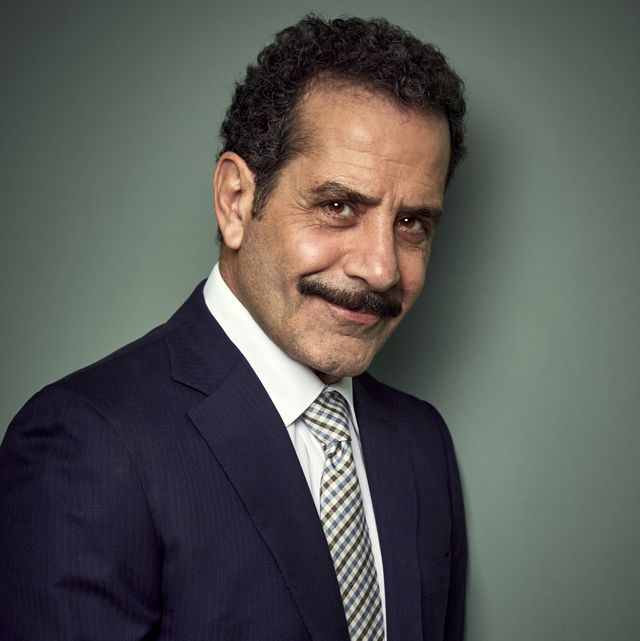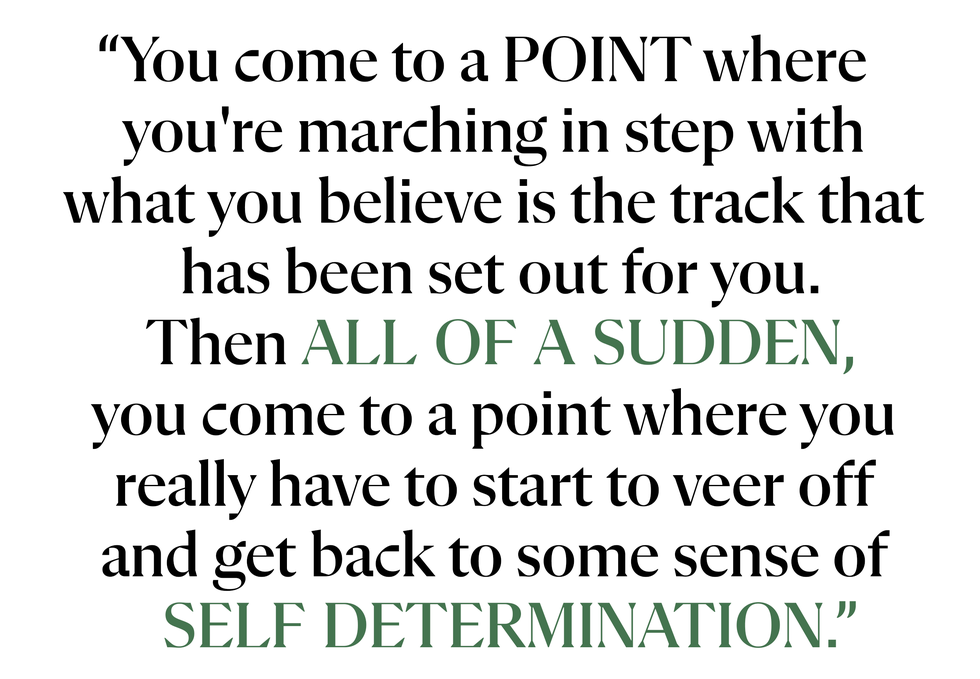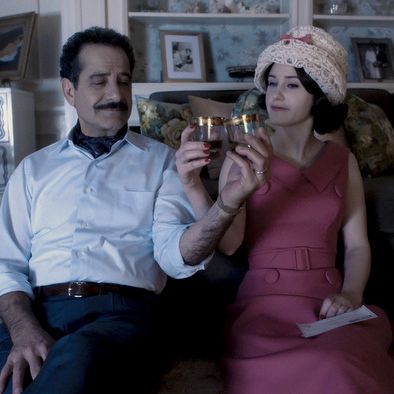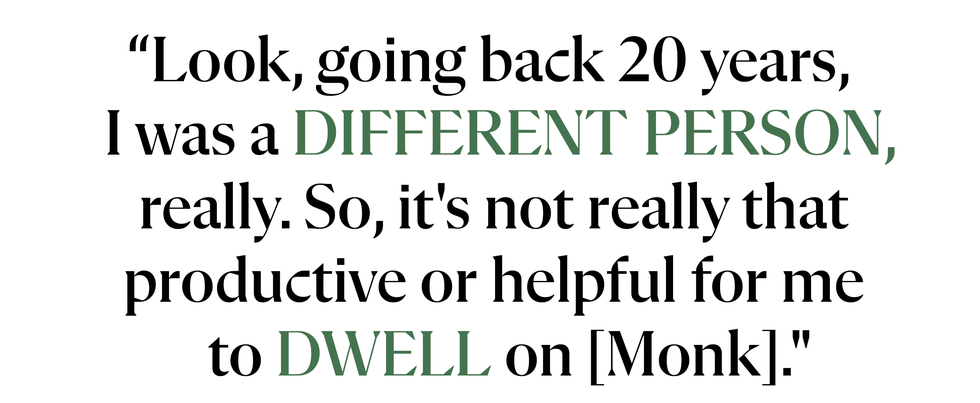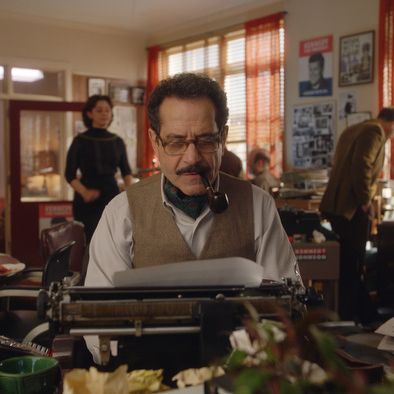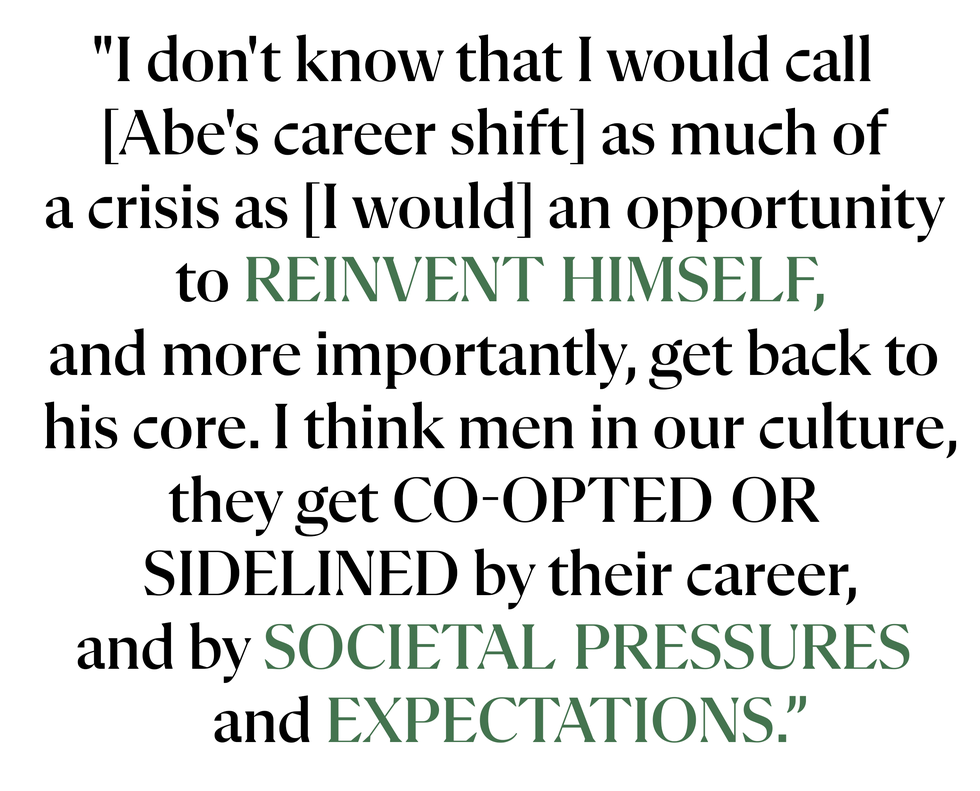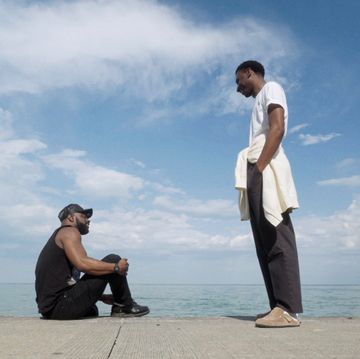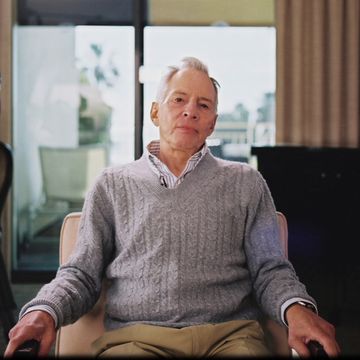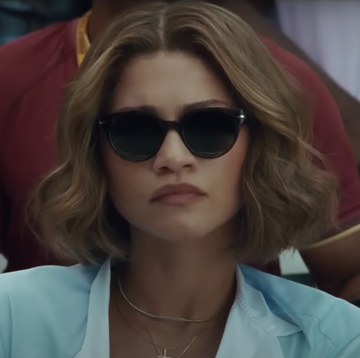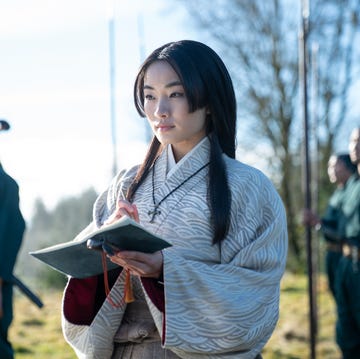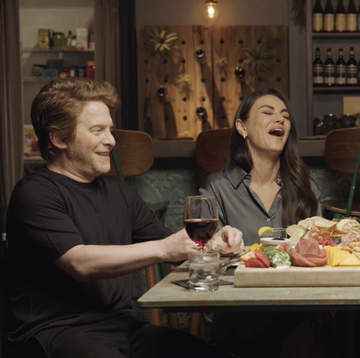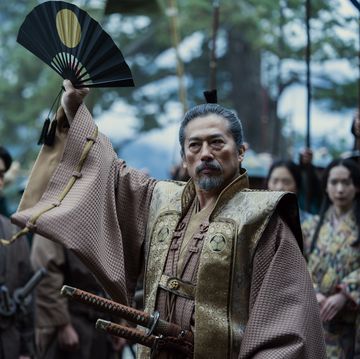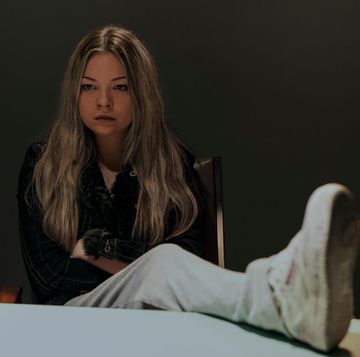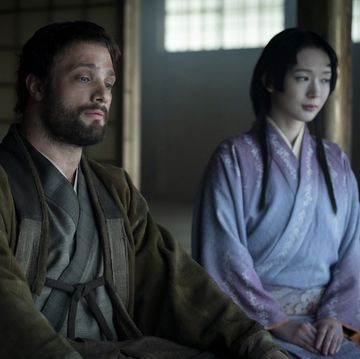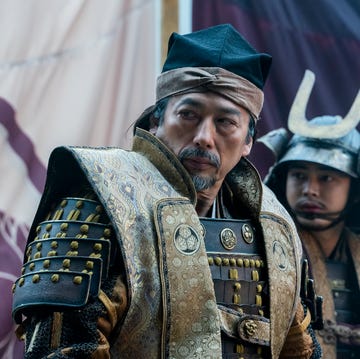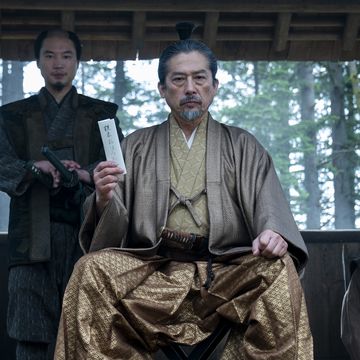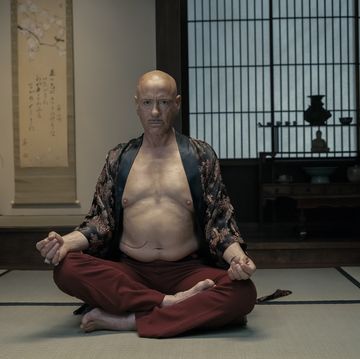Tony Shalhoub is headed upstate to visit his daughter, which is why FaceTime isn’t working. The road between Manhattan and upstate New York is certainly known for its leaf-peeping appeal, but not its wifi. “Can you hear me now?” he keeps saying, as a pixelated blue sky wizzes by, outside the car window, the feed becoming more and more granulated. Blurry, blurry, blurry, black.
Take two.
Tony Shalhoub is headed upstate to visit his daughter, so we’re doing a phone interview. The last time Shalhoub and I spoke was over two years ago in a Manhattan hotel room. Snow was falling outside; it was lovely. Of course, a lot has changed in the time since the most recent season of The Marvelous Mrs. Maisel premiered—a global pandemic gave way to a massive civil rights movement that dovetailed into a seemingly never-ending presidential election. But that’s the magic of Maisel, right? Unlike the shows that have tried to incorporate Covid storylines into their seasons (usually to cringeworthy results), Maisel stays entrenched in a different era.“One of the things I love most about the show is that we're in a whole other universe,” Shalhoub says as we speak in mid-January. “Pre-cell phones, pre-personal computers, even pre-cordless phones, really. I just find that incredibly refreshing.”
Shalhoub, 68, embodies that steadiness as well. Even after the throes of a couple of wild years, he remains constant. He is still soft-spoken. Still incredibly humble. Hell, he’s even wearing a jacket that's the same shade of blue as the sweater he wore when we spoke in 2019. But Hollywood can be fickle about things that stay the same. Shows included. And the two year-hiatus since Maisel last aired certainly doesn’t relieve the pressure to come back strong. For Shalhoub (and his Maisel character Abe Weissman), that’s a challenge worth accepting, because, as he sees it, the only thing to do in the face of being complacent is to pivot. In Hollywood and the fast-talking world of the Sherman-Palladinos, there is no room for stale. Stale gets you tossed out in the garbage.
When Season Three ended, Shalhoub’s Abe was transitioning from a season of reinvigorated political radicalism and activism to an unexpected position at The Village Voice. In Season Four, the realities of working at a counterculture paper become clear; yeah, it’s cool as hell to be a radical, but it’s also not nearly as lucrative. Gone are the days of living in a Manhattan high rise on a Columbia professor’s salary. But when I asked Shalhoub if this was Abe’s midlife crisis, he wasn’t sure he’d go so far. “I went through this, too, with my own father, when he was in, I think even his mid to late 50s. He had a forced retirement then,” he explains. “I don't know that I would call it as much of a crisis as [I would] an opportunity to reinvent himself, and more importantly, get back to his core. I think men in our culture, they get co-opted or sidelined by their career, and by societal pressures and expectations.”
But men in our society, especially in the era of Maisel, also have (and had) this notion that they should be the breadwinner. There are roles to be filled: roles that his onscreen daughter Miriam (Rachel Brosnahan) has been breaking down for three seasons. In the new run of episodes, Abe and his wife Rose struggle with that shift in both gender and generational norms—a change that Shalhoub says Miriam handles with grace, even if her parents aren’t so sure what to make of it. As forward thinking as Abe is, it’s a struggle being in the passenger seat of your daughter’s life. “It's interesting to see and to explore who the guy really is,” Shalhoub says. “I think the fact that the writers put him in as a theater critic at The Village Voice… that’s a side of him he had to put on the back burner for a number of decades.”
When I ask Shalhoub about his own opportunities for reinvention during his five-decade long career, he waffles a bit. His own past is, perhaps, not as interesting to him as it is to the rest of us. But, I mean, the man is Monk. How could I not bring it up? When I told him that the series that earned him three Emmys (out of eight nominations) will have its 20th anniversary this year, he actually doesn’t believe me at first. “Look, going back 20 years, I was a different person, really. So, it's not really that productive or helpful for me to dwell on those trends,” Shalhoub says of the time. He agreed to reprise the beloved germaphobe for a Covid campaign that aired early on in the pandemic, but unlike a lot of beloved series, Monk has not gotten the reboot treatment—something that Shalhoub suggests is unlikely. “I loved doing that show, but, again, I try to stay more focused on the present and what might be around the next corner.”
The way he explains it is, I suppose, the difference between an old pitcher who talked about his glory years on the mound and the guy who’s still out there lobbing balls over the plate. “You come to a point where you're marching in step with what you believe is the track that has been set out for you,” he says. “Then all of a sudden, you come to a point where you really have to start to veer off and get back to some sense of self determination.” After nine years with Monk, Shalhoub got back to his theater roots, then landed the fast-paced world of Maisel, which has earned him another Emmy (out of three nominations).
His castmates aren’t so hesitant to spout off when it comes to Shalhoub’s venerated resumé. Shalhoub’s on-screen, (ex-) son-in-law Michael Zegen remembers being a bit starstruck. “If you had told me—a-17-year-old movie theater usher at the Paramus, NJ Cineplex the summer Men In Black premiered—that I'd one day star on a TV show opposite the alien ‘Jeebs,’ my head would've exploded. Needless to say, I was a huge fan of Tony Shalhoub's before Maisel, and, since working together, my admiration for him has grown exponentially.”
But for all the accolades and pomp and circumstance that follow his previous performances, Shalhoub insists that there’s plenty of misfires audiences haven’t seen. “There are things, too, that I've done that I try not to dwell on. The regrets. I've certainly made more than a few missteps along the way.” He launches into a story of a time he took a risk. Shalhoub’s theater credits out-date anything he’s done on screen. Back in 1980, he played Oliver in As You Like It for the American Repertory Theater, where he performed through 1984. But after 30 years on stage, he had an itch. “Where I really feel like I walked out onto a very narrow, very thin, brittle limb was a couple years ago when I just decided to do this musical—this Broadway musical—having never done that before,” he says.
To hear him tell it, this is the moment that Shalhoub took a swing at a new interest and missed. “It was not something I had to do, necessarily. I just thought maybe it was time for me to take a big risk, and even maybe fall on my face, if it came to that.” The role, by the way, was the one that landed him his only Tony. When I mention that, Shalhoub seems to gloss over that fact entirely and adds, “You certainly grow more from your failures, as long as you don't allow them to destroy you and cause despair.”
So maybe Shalhoub isn't a great chronicler of his own past. Instead, we turn to the future. He is set to star in Jim Gaffigan’s upcoming Linoleum, slated to debut at next month’s South by Southwest. In terms of stage, Shalhoub hopes for a return to normalcy—and not the kind of “filmed for home TV screens” normalcy (when asked if he had seen the ill-fated Netflix project Diana: The Musical, Shalhoub says, diplomatically, “I did not get a chance to see that. There's so much I missed because things just come and go”). He wouldn’t mind a new venture in front of a live audience. And those opportunities may be coming up sooner than expected; one day ahead of the premiere, Maisel was renewed for a fifth and final season. That means, like all things, Abe Weissman and all Maisel's escapist period-piece trappings will come to an end. But that's not today. The priority is Maisel. There’s still work to do with Abe. Still layers of the onion to peel back.
As that final moment looms, it’s always interesting to hear where an actor stands with such a role. Other series standouts like Constance Wu, Katherine Heigl, and Lauren Cohan tried to buck their breakout TV roles in pursuit of bigger projects—it’s a natural inclination, I suppose. Shalhoub is not that. “Tony leads by example,” Zegen says of his co-star. “He's had a career that I can only hope to emulate, and a mustache that I couldn't emulate if I tried.” Maybe the secret to it all is that Shalhoub is seasoned. He knows a good deal when he sees it, and he has a reputation for riding these assignments out until the end, seizing the power to reincarnate the soul of a character without losing his essence. “If it were possible, I would love to squeeze another five seasons out of it.”
He pauses for a moment on the phone when we return, briefly, to the topic of his success and eventually says, “I guess what it really, really teaches me is that I have to be grateful. I've been so incredibly fortunate in that I had these opportunities to work with amazing actors and writers and directors designers,” he stops again, as if to assess if the list he’s rattled off is exhaustive.
“And that I need to really never lose sight of how fortunate I am,” he says, as if it all could go away tomorrow.
